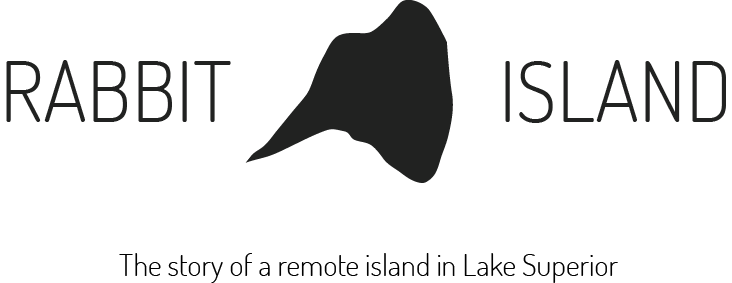Rabbit Island’s ecosystem has persisted without experiencing subdivision, forestry or industry and retains objective characteristics conducive to well-controlled study of nature. In light of this historical circumstance science will be supported on the island in any subdivision under the broad umbrella of science–biology, botany, forestry, ornithology, ecology, geology, sustainability, etc.
Following in the footsteps of other regional wilderness areas–Huron Mountain Club Wildlife Foundation, Isle Royal National Park Research, Apostle Islands–the new Rabbit Island Science Foundation will encourage in-depth study of the natural systems of the Lake Superior terrestrial and aquatic ecosystems. Goals include broadening the understanding of natural cycles in the native lake environment, defining the influence of human activity and industrial byproduct on nature, and paying homage to the American frontier experience. Rabbit Island will provide a unique setting for researchers to perform serious scientific inquiry.
Researchers from local institutions including Michigan Technological University, Northern Michigan University, the University of Michigan, Michigan State University and other interested institutions are encouraged to submit proposals. Cataloging the natural data of Rabbit Island is central to the understanding of the island’s natural cycles over large spans of time. Scientific research is encouraged for its own sake.
Examples of possible research topics include (but are not limited to):
+ The annual measurement of Mercury found within various size classes of native Traverse Island strain Lake Superior lake trout.
+ The effect of annual air temperature on breeding success of the Rabbit Island blue heron colony.
+ Water quality pre and post-Keweenaw stamp sand remediation efforts.
+ The life cycle and habits of the resident island bald eagles.
+ Lake Superior island forest composition and succession in the absence of large browsing mammals and climax community definition.
+ Genetic diversity specifics of native Rabbit Island lake trout populations.
+ Annual Lake Superior water level and relationship to regional climate.
+ Population dynamics of competing nesting gulls and cormorants over several generations.
Research access will be provided to the island with little bureaucracy in the hopes of encouraging scientific discourse and the systematic knowledge of the natural world gained through observation and experimentation. Multi-year proposals will be entertained as will projects of short duration.
In all cases proposals should have scientific merit and be based on sound scientific reasoning. Priority will be given to projects according to the following broad standards:
+ Use of the unique and unusual features of the island ecosystem in study design is encouraged.
+ Studies addressing the merits and consequences of climate change or other large-scale environmental change are encouraged.
+ Projects potentially leading to long-term research with funding will be looked upon favorably. (We can’t afford to fund this ourselves at this point).
All projects will be considered and researchers should not hesitate to inquire!
Contact Rob Gorski at rob@rabbit-island.org for further information.
